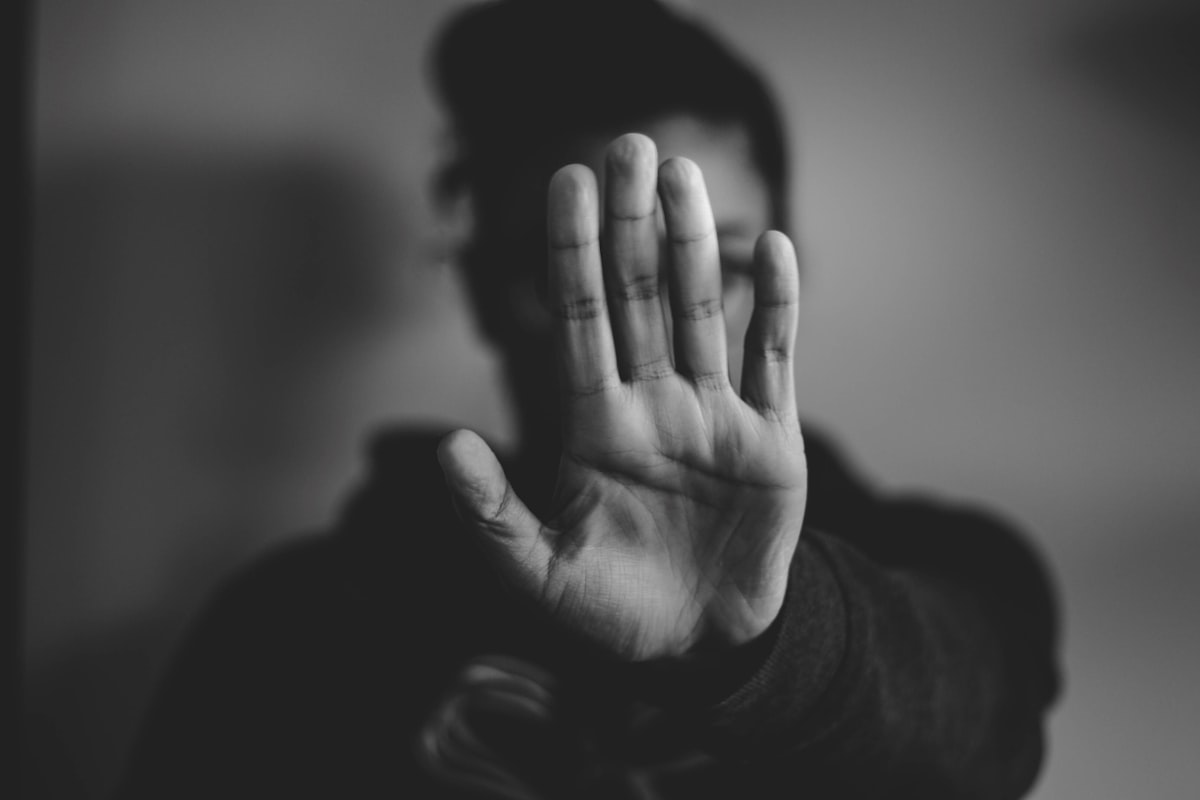Eradicating violence against women, everyone's task
November 25 marks the International Day for the Elimination of Violence against Women. The solution is the participation of the State and society. There is no better way to empower women than to give them a job.

At this moment there are two pandemics in Mexico and the world: the one caused by COVID-19 and the one caused by violence against women. "The vaccine for the latter has a cultural and political content and requires the participation of all State actors and all people so that we can prevent and eradicate it," explains Georgina Cárdenas Acosta, a researcher at the Facultad de Estudios Superiores (FES) Aragón.
In 1993 the United Nations established the commemoration of the International Day for the Elimination of Violence against Women (November 25), to prevent and eliminate it, with a global action to raise awareness, promote advocacy and create opportunities for debate on challenges and solutions. The date was set in memory of the Mirabal sisters, three political activists from the Dominican Republic, who were assassinated in 1960 by order of then-President Rafael Trujillo.
Although there are legal frameworks that make visible the wide range of aggressions, in parallel, there is still a serious problem of femicides: the number of 11 murdered women per day does not decrease, and 911 calls have increased. It is worth noting that data from the document "Femicidal violence in Mexico", published by the UN in December 2020, from 1990 to 2019, 331,246 accidental and violent deaths were registered.
The international organization specifies that before the pandemic (2019), 243 million women and girls in the world were abused by their intimate partners, and the reduction of support services and access to help aggravated the problem. In this period, in some countries, calls to helplines increased fivefold.
The head of the Sociology Department says that to resolve the situation, the three branches of government (Executive, Legislative and Judicial) must be involved and society must make a substantial commitment to stop supporting this patriarchal practice, based on unequal relations of domination and power.
In reaction to this phenomenon, the world is currently experiencing the fourth wave of feminists who work in social networks, to highlight the challenges they face daily and work more on self-care. After recognizing that violence against women is an obstacle to the equitable development of nations, the sociologist points out that the commemoration invites us to reflect on eradicating inequalities, generating spaces for equal parenting, promoting new masculinities, as well as education about equality.
"Feminism is something that has a valuable potential that allows us to change not only the lives of women but of people, humanity and initiate the change to defect from the patriarchal structure, generate changes and stop being accomplices of the systems of domination with figures: 11 femicides no longer mean anything to people, because they forget that they are mothers, daughters, mothers-in-law, granddaughters and we do not know if tomorrow it will be us," she emphasizes.
Violence against women, a common factor in Mexico and Jordan
The best way to empower women is to give them a job. Ensuring women's participation in public and economic life, one of the pending issues of modern society. In Europe and the Arab world, religious and political leaders are allied against women's rights. Gender parity in the chambers of deputies and senators was achieved by 2021. If the laws do not protect and help them, it means leaving 50 percent of the population behind.
Whether in Jordan or Mexico, violence against women is a phenomenon that follows the same routes no matter where they are: male control over them, agreed specialists from both countries gathered by the University Program of Studies on Asia and Africa (PUEAA). It is, therefore, necessary to identify the agents of change among religious, political, and economic leaders so that they can have a positive influence, whether in legislation or politics and achieve greater participation of women in these sectors, traditionally dominated by men.
Participating in the round table discussion "The role of women in politics in Mexico and Jordan", the coordinator of the PUEAA, Alicia Girón González, stressed: it is important to value women's participation in economics and politics because giving employment to a woman implies empowering her, so changes must be made in the culture to try to be more democratic and have better laws in both nations.
"When a woman has an income, whether, in the formal or informal sector, she can have the decision of what she wants to do with that money and that gives her power and freedom. Of course, many times what you earn is for your children, school, family, all the time you are working for others, except for yourself," she stressed.
The Mexican Ambassador to Jordan, Roberto Rodriguez Hernandez, commented that there is no doubt that one of the great pending issues in modern society is to guarantee the rights of women, especially in terms of their participation in public and economic life. She also recognized UNAM's work to strengthen women's rights.
For Bushra Abu Shahou, a member of UN Women Jordan, violence has in common the thought of men dominating women in certain sectors and politics is one of those they enjoy dominating; moreover, Jordan has one of the lowest percentages of empowered women in business (15 percent).
"It is very important to consider that economy, development and sustainability cannot exist if 50 percent of the society is left behind, without protection, without legislation that makes them feel welcome to enter the market in public or private sectors, in financial markets, in politics, in education. If laws do not protect and help women, this means leaving half of the population behind," she said.
In her turn, sociologist Haifa Haidar, member of the Jordanian Women's Union, explained that in the Arab world political and religious restrictions make it difficult, even for women activists, to participate because there are several limits and one of the important ones is that if a woman wishes to participate in these activities she must first leave her home well cared for.
"They always use religious causes to diminish, to tighten women's participation in social and political life, in any activities outside the home. And politicians use religion to also violate the rights of women who participate in public life in the country. I don't know why for decades in Europe, as in the Arab world, the religious and the politicians are allies", commented Haidar.
In turn, Fernanda Vidal Correa, a researcher at the Universidad Panamericana, recalled that in Mexico, from 1953 -the year in which women's right to vote was recognized- to 1981 when Rosa Luz Alegría became the first woman to hold the post of Secretary of State (Tourism), progress was slow. Gender parity in terms of seats in the Chamber of Deputies was not achieved until 2021 when a 50.1 percent participation of women was registered, while in the Senate the figure was 49 percent. To achieve the above, it was necessary to promote vertical (with legal obligations for nominations), transversal (to prevent men from taking their positions), horizontal (parity must be territorial), and total (by constitutional mandate) agendas; even so, there is still a long way to go.
Aggression is a phenomenon that follows the same routes, whether in Jordan or elsewhere; it is men's form of control over women, they believe they have the right to decide about their bodies, ideas, and decisions of women. When they enter politics, the violence towards them is because of the notion that they are in an area they shouldn't be in. "I think unfortunately we experience violence in the same way. The difference is that in Mexico we have a legal framework that supposedly protects women from political violence," she reflected.




